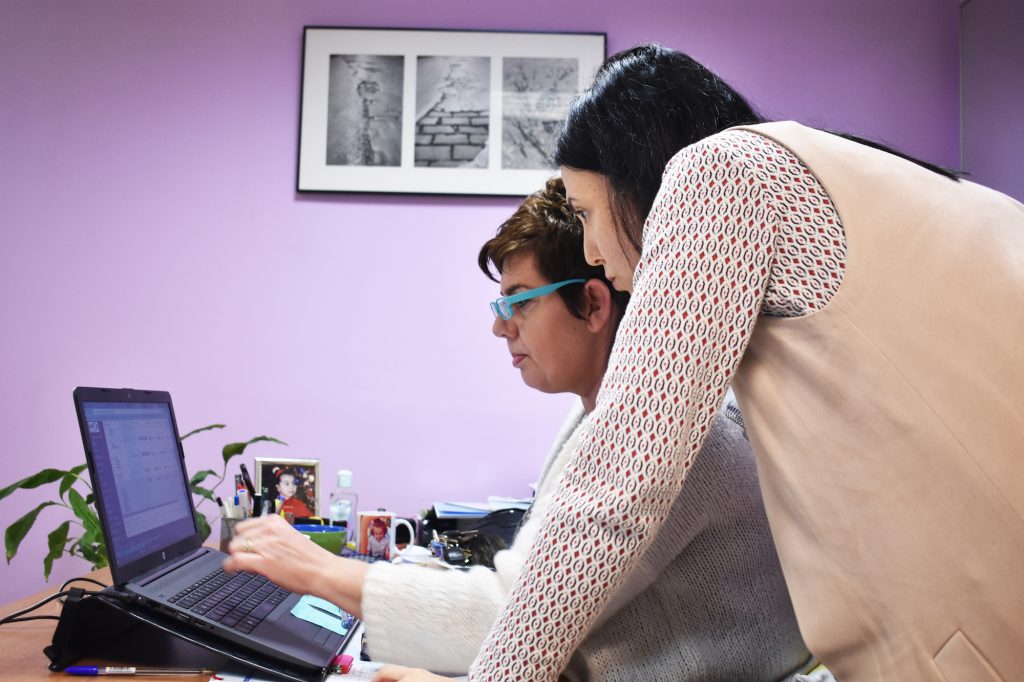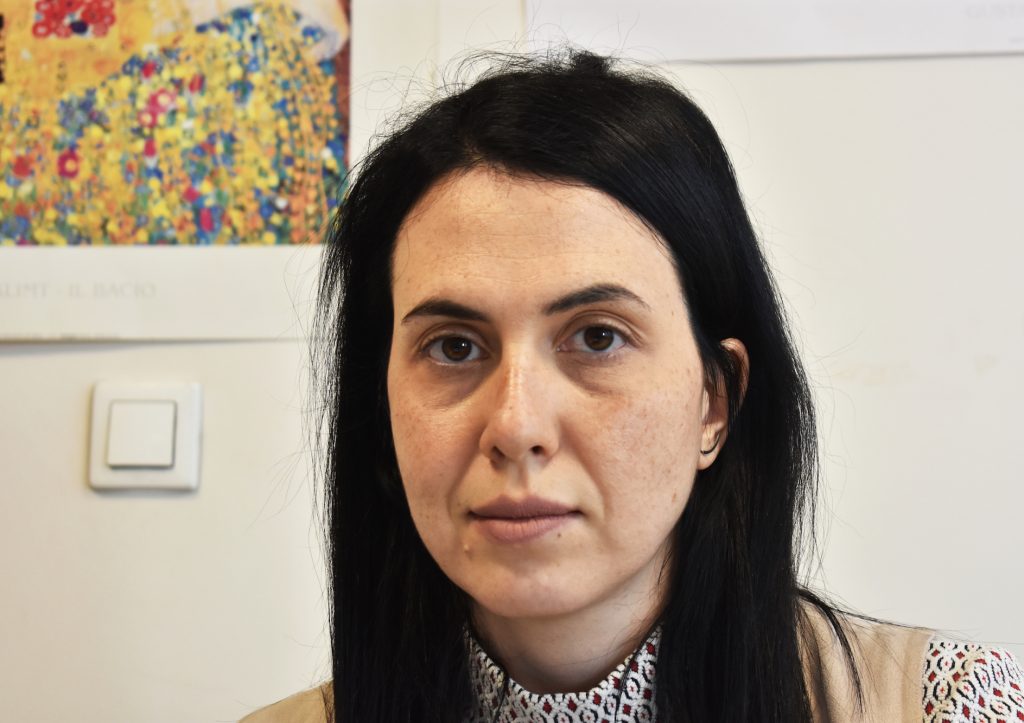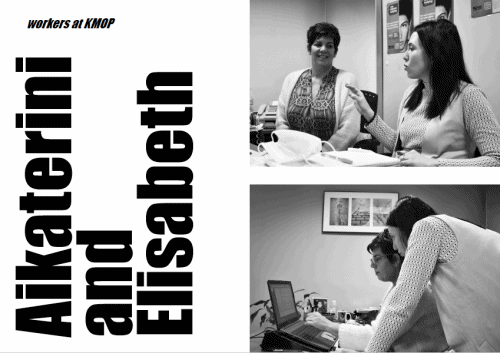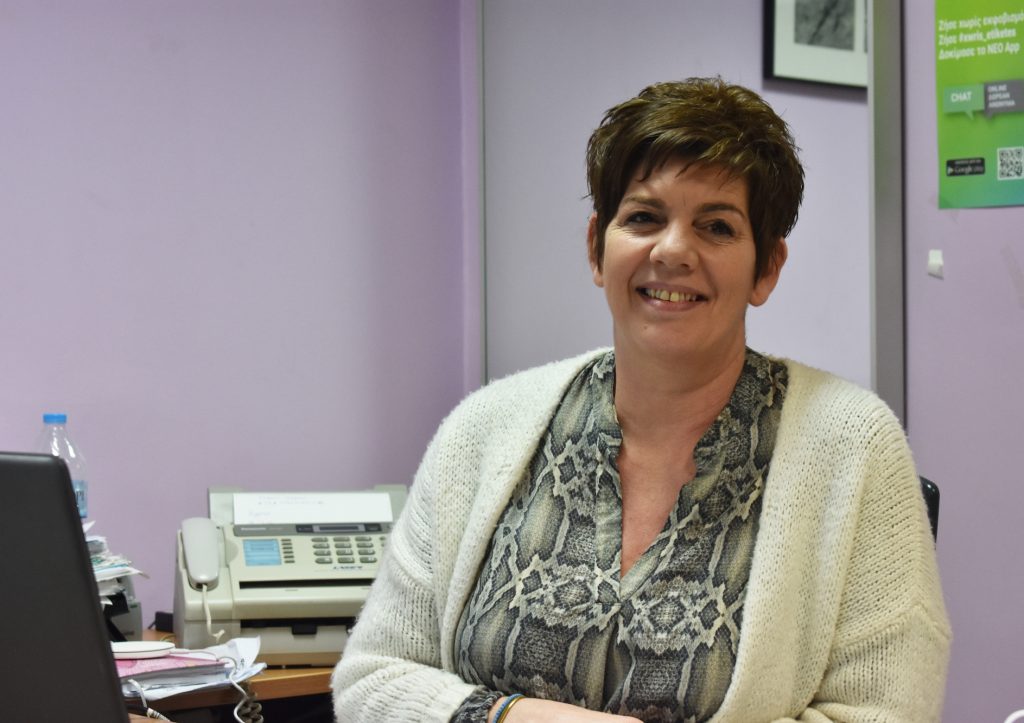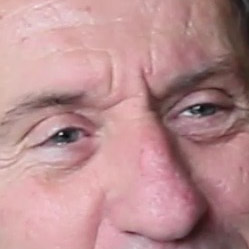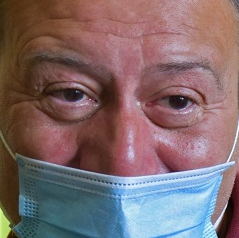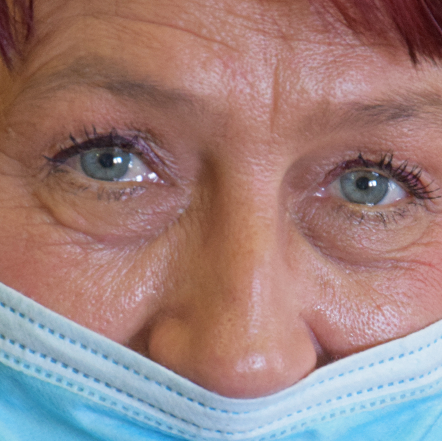Refugees, trafficking victims, victims of gender-based violence, job searching citizens and cancer patients. Imagine working in this environment. Every day you hear heartfelt stories. Every day there are new people. Every day new stories and new issues. What is it like to work in such an environment and how does this affect one personally? Aikaterini Sourda (49) and Elisabeth Ntountoulaki (33) work for KMOP, a Greek organisation where these people can come for help.
Written by: Yvonne van Schaijk
She enters her office with resolute steps. Strong-minded, protective, and ambitious. Caring for the help-seeking people, but at the same time businesslike. Aikaterini has been actively working for almost twelve years at the NGO, a centre for families and children. “We try our best to make things better for the people.” A small smile adorns her face. “I love what I do.”
A normal day
“Every day is a busy day. The telephone is continuously ringing.” She shrugs. “It is a little bit crazy, but it’s okay.” The Greek offices help in European projects as well as national projects which have a very big spectrum: from helping with job interviews to psychologic support. “The people don’t need to come to the office if they need help or something else. We can also talk on the phone. We’re always there for them.”
“I get a smile on my face when I give help”
Even though the stories affect her emotions, the 43-year old keeps going on. “It is difficult in a way, but in another way it’s beautiful. It makes you feel very good when you help someone.” She smiles. “I get a smile on my face when I give help.”
Suddenly the phone rings. While apologizing she picks up, puts the phone on speaker and vivid Greek conversation follows. After a minute Aikaterini hangs up. “Sorry, let’s continue,” she says.
Dealing with emotions
Knowing how to deal with your emotions is important in this work. Elisabeth, who sat silently next to Aikaterini during the first part of the interview, speaks up. “I’ve been working here in this office for only one month right now. In 2016, when the big crisis in Syria started, I started working as social supporter for refugees and did this for six years.” She stares into the distance for a little while. “It was difficult in the beginning. During the first month I cried when no one saw me, but then you start building resilience.” A resolute look appears in her eyes. “You must be very strong and build up resilience to be able to help them. I love working with refugees.”
“You must be very strong and build up resilience to be able to help them”
Even though the women stay strong to be able to help the people in need, they experienced some emotional and difficult times. “We have many stories,” says Aikaterini. “A young migrant woman and her little girl were here and the child needed an operation for her heart.” She swallows. “Because they didn’t have the right papers, we couldn’t find the right procedures to make sure the girl could have the operation.” For the first time emotions swirl in Aikaterini’s eyes. “It was very difficult. They left for Athens for the operation, and I lost contact with them since. I don’t know what happened to the little girl and her mom.” Her shoulders drop and silence fills the room.
After a while Elisabeth explains: “It’s very common that we can’t keep track of everyone. Every three months migrants can get a free phone card, so they keep changing numbers. At other times they move to a different country. They just disappear.”
“The case always stays open. Forever.”
Happy stories
“We also have happy stories,” says Aikaterini smiling. Elisabeth confirms this enthusiastically: “A few of the people we’ve helped send me stories by WhatsApp or Instagram. But what’s important to realize is once you open a case, it’s very hard to close it. The case always stays open. Forever.”
The 33-year old is silent for a second before her eyes start to sparkle. “I did have one case that I could close. The woman is from Cameroon and I told her: you don’t need any support anymore, but if you need help in the future, we can always reopen your case.” She smiles and looks at us proudly. “She lives in Athens now and has her own restaurant. Once a year she sends us a message.” Then Elisabeth exclaims excitedly: “Other people are learning Greek and send me voice messages in Greek with an update about their life.” Tears sparkle in her eyes. “It means a lot to me when they send me photos or an update.”
“You experience good stories and bad ones, but that is life”
Aikaterini softly adds: “We experience good stories and bad ones, but that is life.” Both women are lost in thought, and you can hear a pin drop. Then Aikaterini claps her hands and says: “Let’s get back to work.” And in an instance the businesswoman is back.


